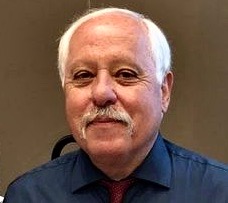Ever wonder about the concept of time? I know I have. Time has been pondered in literature and song for, well, time immemorial. “Time has come today.” “Time is on our side.” “Time waits for no one.” “Time after time.” “Times like these.” “Does anybody really know what time it is?” “Time in a bottle.” Well, you get the picture.
So, when perusing summer reading material, I selected a tome on the subject of time by Italian physicist Carlo Rovelli, who “uses a conversational tone to untangle the most complicated” of concepts, someone who is “known for making complex science intelligible.” The book? Order of Time. Okay, I thought, I’ll bite.
Needless to say, I’ve been fooled by dust jackets before, and this would certainly be no exception. Rovelli delves into quantum loop theory, the laws of thermodynamics and other subjects that remain elusive for the likes of me. At times, I was clearly lost. Yet, he offered several digestible nuggets to consider on the subject.
He starts with a few questions. Why do we remember the past but not the future? What does it mean for time to “flow?” Do we exist in time or does time exist in us? Citing Aristotle, Einstein and other great philosophers and physicists throughout history, he weaves through realms straight out of Marvel’s “Dr. Strange.”
First, Rovelli deconstructs time, using a relatable quote from “Alice’s Adventures in Wonderland” by English author Lewis Carroll: “How long is forever?” asks Alice. “Sometimes just one second,” replies the White Rabbit. True enough, because alternately, time can drag, or it can fly by. It depends on your perspective.
Without suffering through the worm hole that I experienced attempting to wade through the book, the short answer is this: time exists in each of us. There is no “flow of time,” and no “present” in the classical sense because our present does not extend throughout the universe. The "present" is like a bubble around us.
Yet the absence of the quantity of time does not imply a world that is frozen and immobile. On the contrary, Rovelli contends, it portends a world in which change is ubiquitous, without order from Father Time. The events of the world do not form an orderly queue, like the English. They crowd around chaotically, like Italians.
The world is not a collection of things, it is a collection of events. The difference is that while things persist in time, events have a limited duration. For example, a “rock” is a prototypical thing. We can ask where it will be tomorrow. Conversely, a “kiss” is an event. It makes no sense to ask where the kiss will be tomorrow.
Another learning: time for us is memory and nostalgia. It is the pain of absence. But it isn’t absence that causes sorrow; it is affection and love. Without affection, without love, such absences would cause us no pain. Even pain caused by absence is something good, even beautiful, because it is that which gives meaning to life.
To summarize: at the fundamental level, the world is a collection of events not ordered in time. The world that we have been given is a world seen from within, not from without. We must not confuse the world “as seen from the outside” with that which we observe, and which depends on our participation.
Rovelli ultimately poses the question: “How can we come to know so clearly about the past, about time, if we are always in the present? Here and now, there is no past and no future. He concludes, much like St. Augustine, that the concepts are within us. The idea is much more convincing than it seems on first reading.
“It is within my mind, then, that I measure time,” wrote Augustine, an early Christian theologian and philosopher. “I must not allow my mind to insist that time is something objective. When I measure time, I am measuring something in the present of my mind. Either this is time, or I have no idea what time is.”


No comments:
Post a Comment